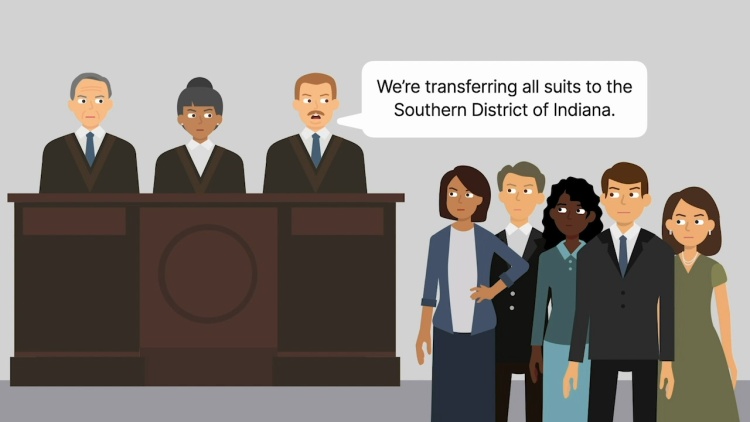In re Bridgestone/Firestone Tires Products Liability Litigation (Bridgestone/Firestone I)
United States Court of Appeals for the Seventh Circuit
288 F.3d 1012 (2002)

- Written by Sara Rhee, JD
Facts
In the late 1990s, Firestone tires installed on Ford Explorer SUVs had a high incidence of failure. Lawsuits were filed against Firestone and Ford (defendants) to recover damages based on either: (1) the injuries or deaths caused by the defective tires or (2) the risk of failure, including damages for diminished resale value or mental stress. Lawsuits that had been filed in federal court were transferred to the United States District Court for the Southern District of Indiana for consolidated pretrial proceedings, after which they would be transferred back to their respective courts. Some plaintiffs sought to avoid having their cases transferred back. These plaintiffs brought a new, consolidated federal suit in Indianapolis and sought class certification. The judge certified two nationwide classes. The first covered those who owned or leased a Ford Explorer during the relevant period (the Explorer class). The second covered those who owned or leased certain types of Firestone tires during the relevant period (the tire class). These classes together covered over 60 million tires and 3 million vehicles. In certifying the two classes, the district judge ruled that, under Indiana’s choice-of-law provisions, the law of the place where the defendants had their headquarters governed. Accordingly, the district judge ruled that Michigan law would govern the Explorer class claims and Tennessee law would govern the tire class claims. Ford and Firestone sought interlocutory review.
Rule of Law
Issue
Holding and Reasoning (Easterbrook, J.)
What to do next…
Here's why 905,000 law students have relied on our case briefs:
- Written by law professors and practitioners, not other law students. 47,100 briefs, keyed to 995 casebooks. Top-notch customer support.
- The right amount of information, includes the facts, issues, rule of law, holding and reasoning, and any concurrences and dissents.
- Access in your classes, works on your mobile and tablet. Massive library of related video lessons and high quality multiple-choice questions.
- Easy to use, uniform format for every case brief. Written in plain English, not in legalese. Our briefs summarize and simplify; they don’t just repeat the court’s language.





